eCommerce sales tax is new territory in the world of retail sales tax. Read this guide to understand economic nexus state-by-state to guide your decisions as you expand into new sales channels and geographic markets.
eCommerce Sales Tax & Economic Nexus


A Brief History of Remote Sales TaeCommerce Sales Tax: A Brief History
On June 21, 2018, the ruling in the case of South Dakota v Wayfair overturned a 1992 ruling known as Quill, and for the first time, states were granted the constitutional right to charge sales tax to companies that have no physical presence within the state. When the original ruling in the Quill case declared that businesses were not responsible for collecting sales tax on sales in states where they did not have a physical presence, or “remote sales”, the entirety of remote sales consisted primarily of catalogue and telephone transactions. These types of transactions made up very little of the retail market and were of little consequence to states’ overall sales tax revenue, but by the time the ruling was overturned in 2018, the eCommerce industry had taken off, accounting for $504.6 billion in yearly sales and major losses for state sales tax income.
This ruling meant that businesses would now be responsible for tracking sales in every state and paying taxes in every state in which they reach an economic nexus threshold. Online sales are subject to varying sales tax laws in 45 states and Washington DC, and to complicate the matter further, some states allow cities and counties to create their own sales tax laws (known as Home Rule states). The result is 12,000 jurisdictions nationwide that each have their own unique sales tax laws with which businesses must stay up-to-date and compliant.
This has the greatest impact on hyper-growth businesses with a national sales presence. It can be difficult enough to manage the day-to-day challenges of a rapidly growing eCommerce business without also staying current on sales tax in all 12,000 US jurisdictions, but failure to do so can result in a hefty accrual of unpaid taxes, as well as late fees and penalties that have been known to cost some companies millions of dollars and have even led to bankruptcy. Often fast-growing companies will attract a great deal of media attention, which in turn garners attention from tax auditors, so it’s of utmost importance for businesses with a national footprint to have a clear understanding of which states they meet the economic nexus thresholds in order to stay compliant.
eCommerce Sales Tax & Economic Nexus
The first step to determining whether your online sales are subject to state sales tax is understanding in which states your business has an “economic nexus”. An economic nexus can simply be defined as an economic presence, and each state’s criteria for determining economic nexus is different. The criteria range from exceeding a dollar amount threshold in sales to making sales at trade shows within the state. For example, your business will have an economic nexus in South Dakota if you generate more than $100,000 in taxable remote sales, or over 200 separate transactions delivered anywhere in the state. These criteria are relatively simple, but some factors that can trigger economic nexus in other states include having a warehouse in that state, having a third party dropshipping partner within the state, and sometimes even having a partnership with an affiliate marketer in the state. It’s important to be familiar with each state’s economic nexus criteria to know in which states you will be required to pay sales tax.
It’s also important to note that not all products are taxable in every state. Clothing, for example, is not subject to state sales tax in Pennsylvania, and grocery items get a 1% sales break in the state of Illinois. Knowing whether your product is even taxable on a state-by-state basis can save you time, money, and a mound of paperwork.
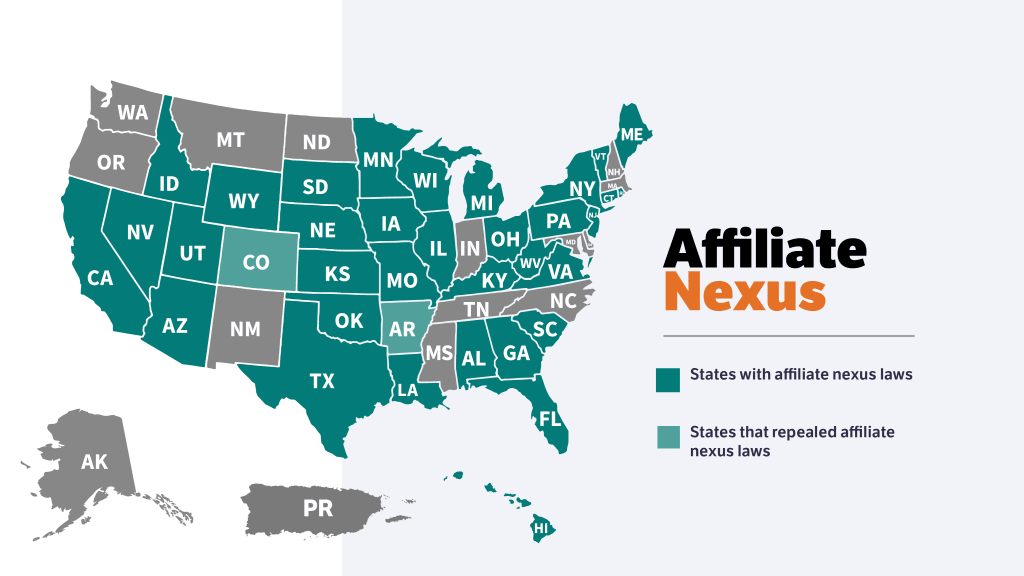



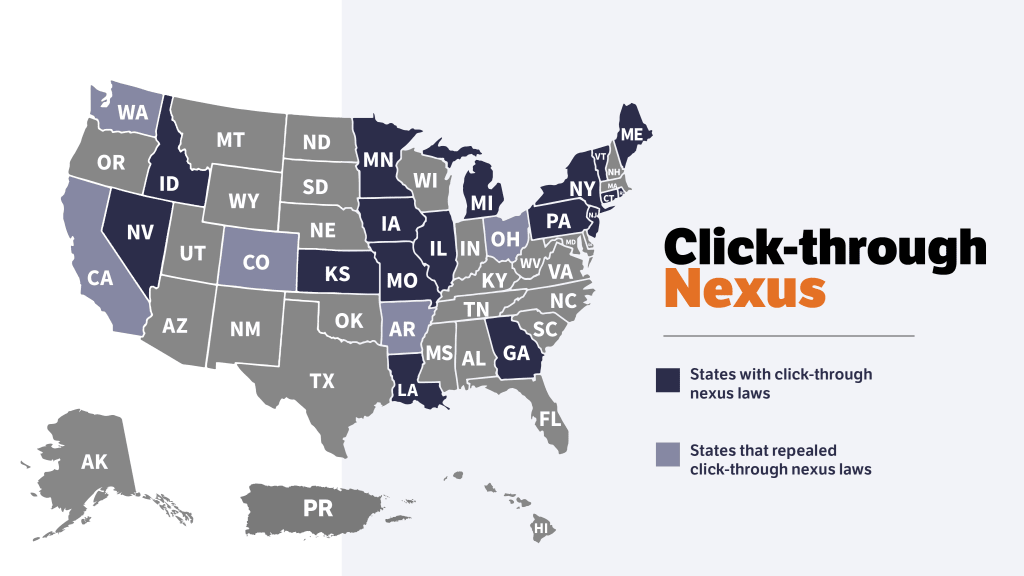

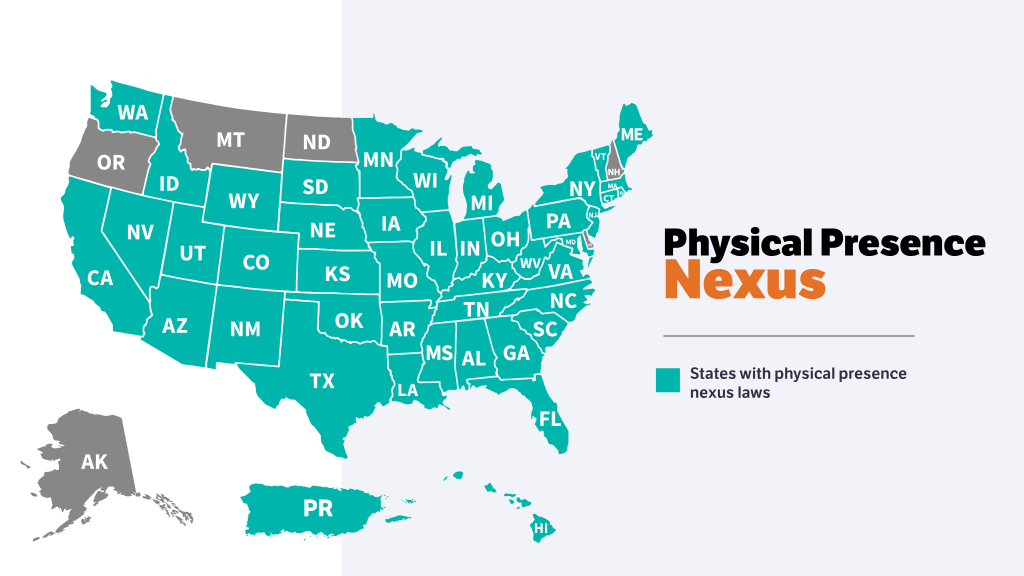

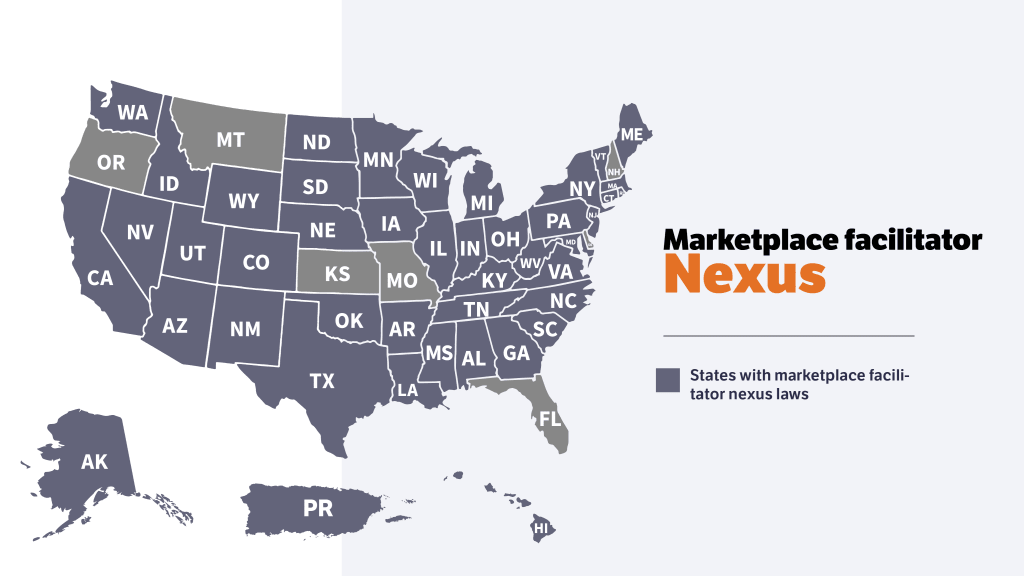

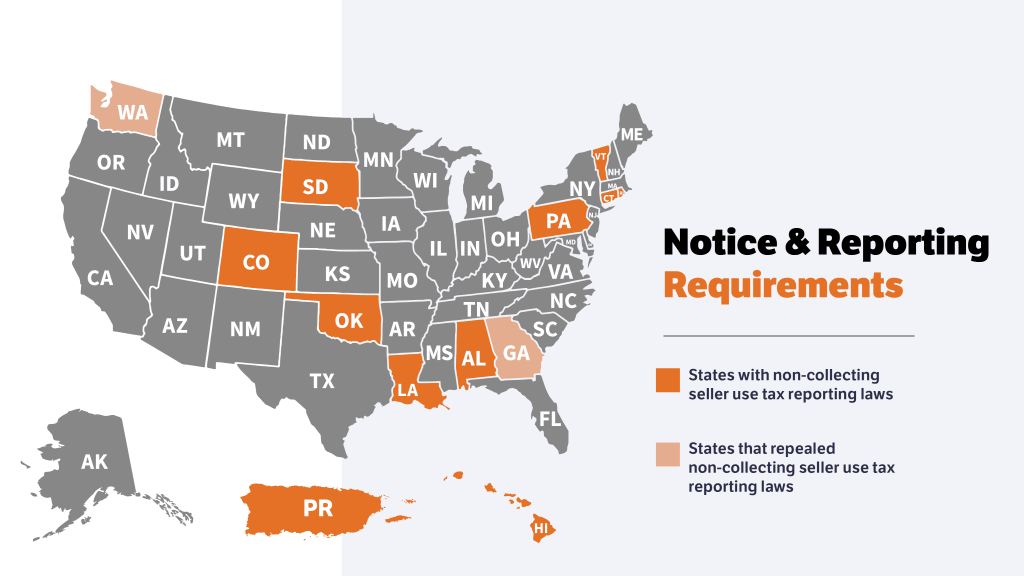

Origin-Based vs. Destination Based Sourcing
Another factor for determining the rate of sales tax for transactions state-by-state is understanding each state’s “sourcing” regulations. Each state has the right to choose either origin-based sourcing or destination-based sourcing. Origin-based sourcing requires the seller to charge sales tax based on the tax rate of the state that the business is physically located in, while destination-based sourcing requires the seller to charge sales tax according to the tax rate in the state the item is being shipped to.
A State-by-State Breakdown
We’ve compiled links to each state’s sales tax policies, hyper-linked in the map below. States are regularly updating these policies, so it’s important to stay aware of year to year changes.
Evolving eCommerce Sales Tax Policies
Today’s digital economy makes expansion into new markets easier than ever, but unfortunately the burden of understanding tax policies in each market is put on merchants. These constantly evolving policies may complicate bottom-line decisions and day-to-day checkout procedures, but making informed decisions and taking full advantage of available exemptions can offset the price of doing business in the fast-paced world of eCommerce.
To learn more about how Ware2Go is simplifying end-to-end solutions for ecommerce sellers like you, check out our solution.

